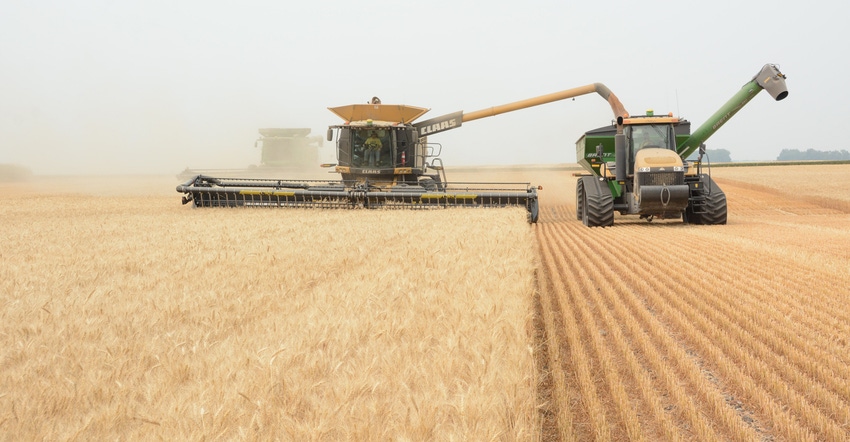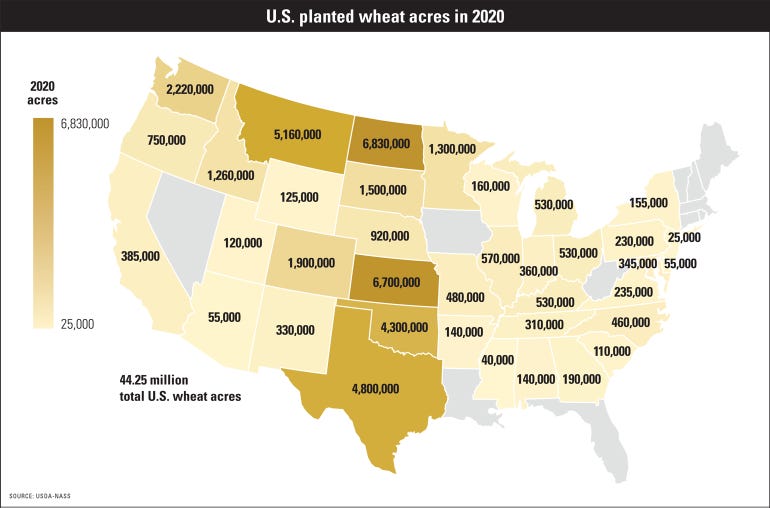
With a new administration comes a new focus for the National Association of Wheat Growers, one that has the organization appointing a special committee on sustainability and climate.
“With all the conversations from the Biden administration and the legislation being introduced in the Senate, climate, carbon sequestration and sustainability are major topics that we continue to look at with wheat growers,” says Chandler Goule, National Association of Wheat Growers CEO.
NAWG consists of 20 state wheat grower organizations, representing more than 77% of the total wheat grown in the U.S. The group is taking a closer look at these initiatives and how they impact wheat growers from across the country by forming a special committee on sustainability and climate.
Climate solutions not blanket approach
In 2020, there were an estimated 44.3 million acres of wheat grown across the country, according to the USDA National Agricultural Statistics Service. As in many commodity organizations, no individual wheat grower is the same.
There are six classes of wheat: hard red winter, hard red spring, soft red winter, soft white, hard white and durum, and they are grown in six geographical regions of the country. What the National Association of Wheat Growers is striving to emphasize with all climate interested parties — food companies, the Biden administration and the Senate — is that a one-size-fits-all approach will not work for each commodity, and definitely not for wheat, Goule says.

He notes that parts of the country have wheat grown in constant rotation with corn and soybeans, which makes for a good environmental balance. But, the farther west the region, as with the Pacific Northwest, wheat is the only crop that grows well. Goule says planting cover crops in these types of locations competes for the moisture needed for the wheat crops the following year. “Therefore, as these two groups — the administration and the Legislature — continue to move forward for what they want to do for carbon and climate, we need to make sure they understand that there is different climate and different demographics that are going to be needed and taken into consideration in order for wheat to be able to thrive in these programs.”
Keep climate legislation voluntary
Goule also states that the association will push for any climate legislation to be voluntary.
Right now, he is concerned that the development of this legislation, or what’s coming from the administration, will be mandated. “Until we get our hands completely around what these programs are going to look like —, what actual benefit and how much carbon they’re going to be able to sequester, and what kind of impact that’s going to have on cost of production to our growers — we want the program to be voluntary,” he says.
There is also a need to recognize early adopters of climate change conservation practices. He adds that the Biden administration needs “to make sure that actual growers are at the table” during the development of sustainability and climate legislation.
About the Author(s)
You May Also Like






